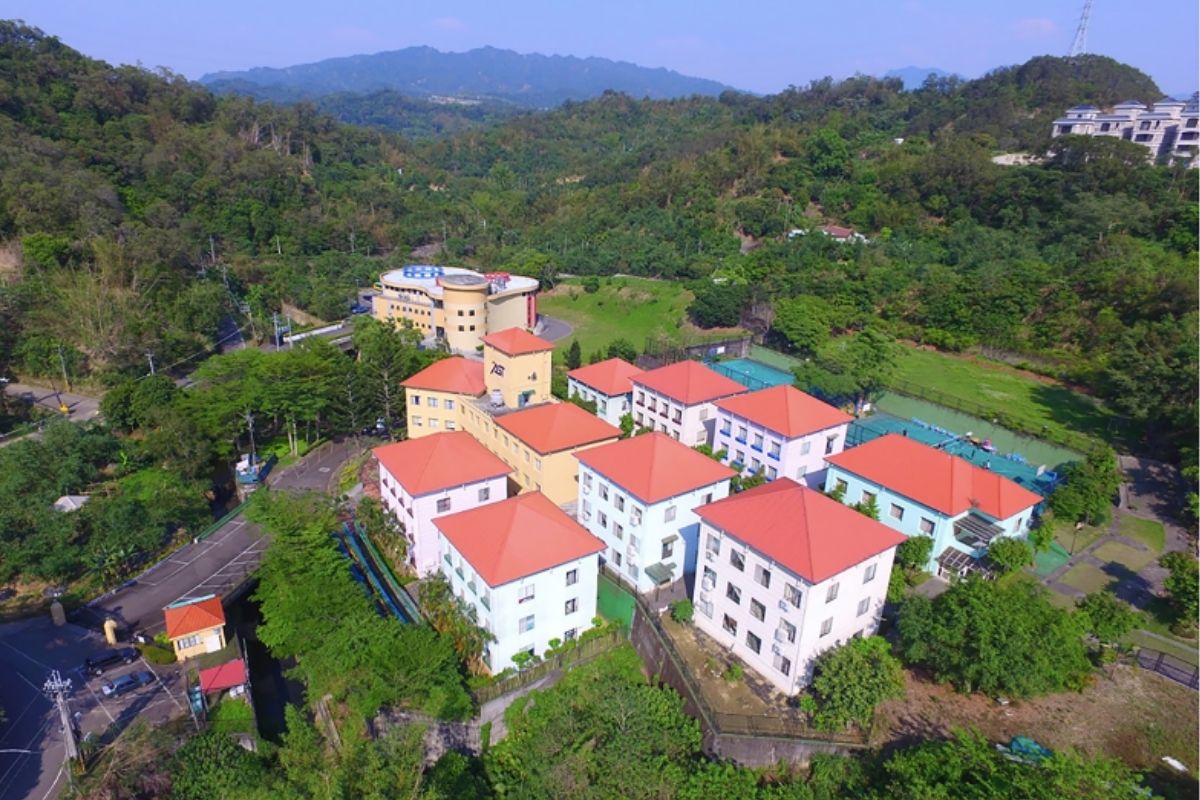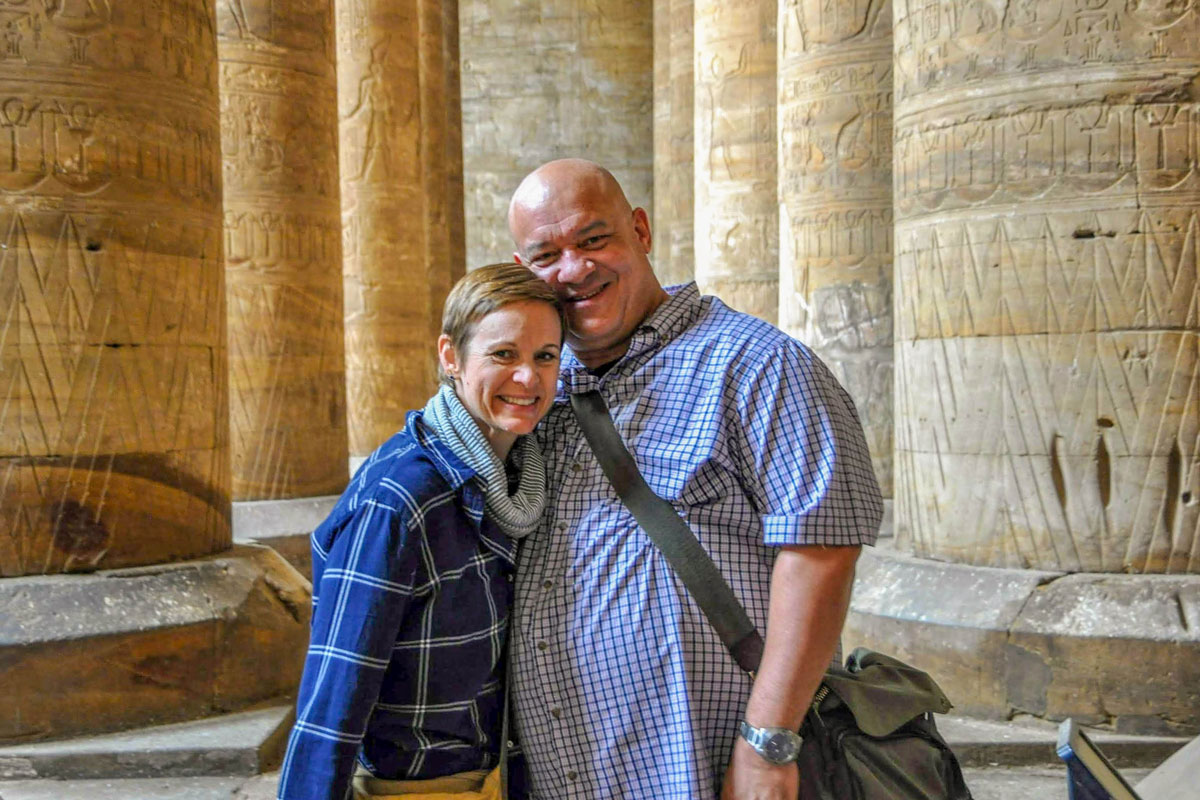The Longevity Mindset: Five Strategies for Career Expatriates

Longevity among overseas teachers is a bit of a mystery. There are dozens of scholarly articles touching on the topic, and at least one full doctoral dissertation that I came across while preparing this article. In the twenty-three years that my wife and I have been teaching internationally, we have seen expats fall into a few general categories. There’s the one-and-dones (contract breakers who are totally overwhelmed and miserable), two-and throughs (folks who just wanted a little work tourism), and the four-and-mores (teachers who pass that settling-in hurdle to go on for a few happy postings). Then there are the “lifers,” a group, strangely, that we seem to find ourselves in now. Lifers are expats who are pretty content overall, professionally and personally, within the international school system and, like the third culture kids they serve, can have a deep affinity with multiple cultures.
So, what keeps us overseas? This is a question that our family members and friends in our other home, the Pacific Northwest, ask us just about every time we visit. We could point them to research. The scholarship on the topic of teacher retention lists reasons which will appear obvious to most: salary, housing, and benefits. Jen and I have reflected on this question also, since the life of the expat has many downsides, like missing birthdays, weddings, and so many other special moments. So, with each contract renewal we set up tables for listing pros and cons, poring over the self-survey until we reach a decision. While the hiring package is certainly a practical concern of ours, the truth is that the deciding factors that almost always tip the scales in favor of remaining overseas are intangible quality of life issues. But unlike the financial perks, the qualitative factors are not external; they are internal and must be nurtured.
And this is where a sense of home is crucial. Our longevity as expat teachers comes from the fact that we have consciously decided to set down roots in every country we have worked. We like to think of our strategy as cultivating a longevity mindset. There are, no doubt, countless ways other international teachers can ensure a long, happy career overseas, but these are the five strategies that work for us.
Get Out of the Bubble
Establishing a sense of home in one’s host country can only be accomplished by participating in the life of the community, not by merely being a spectator. For instance, if you get a job in Rio de Janeiro (as we did for our first post), you could attend Carnaval as a spectator like so many thousands of tourists and watch from the arquibancada, or bleachers. But why not join a local samba school and dance right down the middle of the Sambodromo in full fantasia, or costume? The schools, representing various neighborhoods around the city, are welcoming to foreigners, and there are even practice sessions leading up to the event where lively socializing and the heart-pounding beat of the bateria is half the fun. Meeting locals and being open to partaking in culture has a way of making the expat feel less “other” and more welcomed. If all you do is work and socialize with the same circle of expats, frequenting generic malls, hamburger franchises, and chain hotels, then what’s the point of being overseas?

If there’s one thing Jennifer and I have learned over our two decades as expatriates, it is that there is no one-size-fits-all solution to career longevity. However, a habit common to so many diverse “lifers” is their willingness to seek out local events that you just don’t find anywhere else in the world except in your adopted culture, like the bull races of Sumatra. Shortly after moving to Jakarta, we were fortunate enough to be invited by a lifer to a rice laborers’ competition held each year in a remote, terraced hill community. The paddy races of Pacu Jawi involve muscular bulls, sloppy mud, teams of drivers, and reckless speed. The object of the competition is for herdsmen to essentially waterski behind their charging animals as they splash their way through belly-deep paddy ponds. Along with the spectacle of the animal athletes and their trainers, there’s a county fair atmosphere, and it’s the ideal way to get a glimpse into the seldom reported lives of rural rice workers and their families.
In addition to attending eye-opening public events such as these, a nice way to burst the expat bubble is to take courses in one of your passions. For me, that means learning the language, and for Jen, that means making art.
Here’s my pitch for becoming competent in the native dialect. The sense of isolation one feels when first acclimating to a new culture often stems from the disorientation that comes from being functionally illiterate. One sure way I have found to make the new host country feel like home is to learn some basics. I am not fluent in all of my host nations’ idioms by a long stretch. Still, I have made it a goal in each country to be competent enough to order food, get around by public transportation, and to engage in the kind of small talk you might need to pass the time in a taxi when snarled in traffic.
There are surprising payoffs for putting in hours learning a language. Building your vocabulary is not just about getting a bargain on mangos. In each place we have lived, language has provided surprising insights about the values, history, and culture of the host nation. For example, in Taiwan, while learning about vocabulary for discussing calendars and schedules, I came to understand that unlike in the West where language encourages us to think of time as horizontal (next week, last month), time can be imagined vertically in Mandarin (imagine saying up week, down month). Currently, I am learning Indonesian Bahasa, and I realize that there are multiple ways of addressing people to indicate levels of seniority or respect, strengthening my understanding of the social frameworks here.
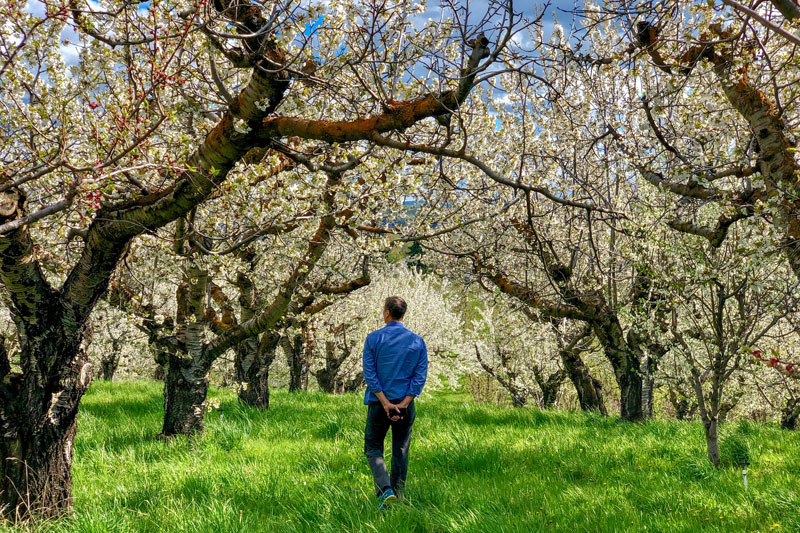
For Jennifer, an art teacher who has worked with students from grades one to twelve, her preferred way to get out of the expat bubble is to take courses in arts specific to the host culture. In Brazil, that meant taking painting courses at a local art school in Portuguese. In Indonesia, that meant taking batik courses and learning how traditional cultures made plant and mineral-based dyes for centuries. Her textile classes even inspired her to share batik and natural dye techniques with her international students.
Almost without exception, long term expats we know tell us that leaving the comfort zone to enter the vibrant public life of your adopted nation is the best first step towards cultivating the longevity mindset.
Get Into a Family
Once an expat commits to really becoming integrated into the public sphere, it is much easier to go the extra distance to participate in the private lives of your host nation neighbors. Making local friends, particularly those who are knowledgeable and excited about sharing their heritage, makes you happy to return from your family holidays. Year in and year out, they will be there to welcome you back. These are the friends who make you local cuisine, show you secluded hiking trails, introduce you to rituals at shrines, or invite you to their daughter’s wedding.
Find a way to foster long-lasting and intimate friendships, since local friends constitute an invaluable support network when so much about the expat’s life is in flux, like housing arrangements, expat cohorts, even family dynamics back home.
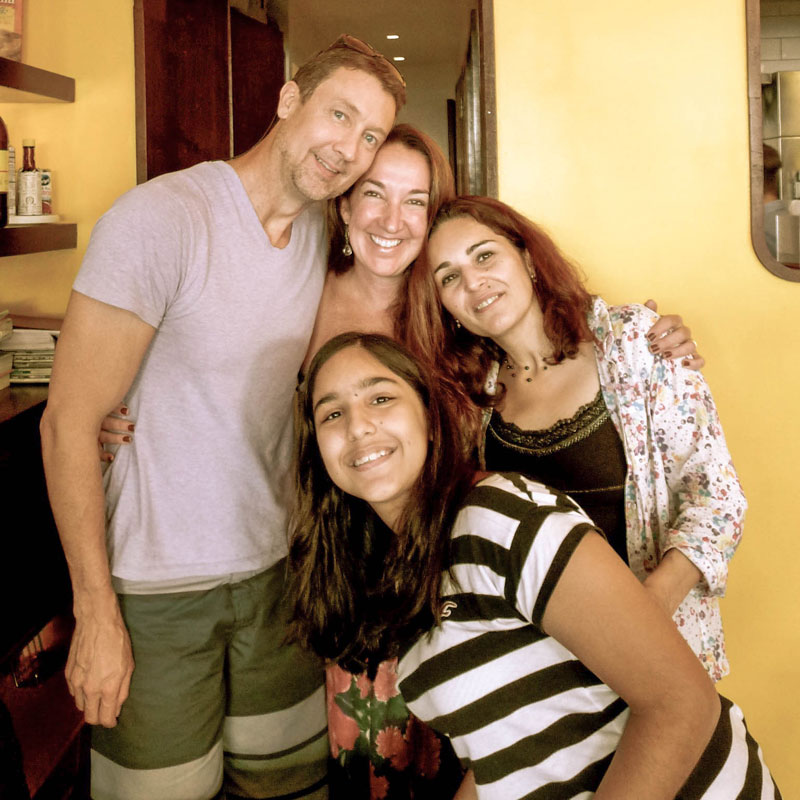
Offering our own experience as a guide, one way to really get to know a family is to sponsor a local child’s education. In many international posts, poverty and income disparity are very pressing concerns, and it is not uncommon for expat teachers to have daily interactions with people struggling to overcome a huge array of hardships. To be sure, there is value in making donations to multiple charities, and there are so many valid causes. But after a few instances of handing out coins to needy kids at traffic lights, Jennifer and I felt that making random donations in small denominations brought the destitute little relief and brought us no closer to the people we intended to help.
Our way of becoming more integrated into local families has been to support the educational aspirations of young women. So far, we have put two Brazilians through nursing school and one Indonesian student through an accounting degree. For example, Ana came to us in Rio de Janeiro, looking for work as a part-time maid. It quickly became apparent to us that she had drive and ambition to improve her lot in life; yet, as a single mother, supporting her daughter was putting an enormous strain on her. She had often mentioned a dream of working in health care, so we offered to sponsor her, paying tuition at a local vocational school (fees we could afford in Brazil), until she became a nurse on a surgical unit for the military.
When Ana left our employment, we hired another woman, Cida, to take her position, and the pattern repeated itself. We put Cida’s daughter, Shirlede, through nurse’s aide training, and she found employment at a daycare center. On her graduation day, we were honored with an invitation. One of the most memorable moments during the event was when the graduates left the stage in their caps and gowns for the closing ceremony. Making the most of scarce resources, the grounds crew blew confetti into the air using a leaf blower. We had never seen more ecstatic, proud graduates.
Now in Indonesia, we support the daughter of our gardener in her efforts to obtain an accounting degree, a significant financial commitment for us, but certainly far more affordable than a comparable degree in the United States. Her father is Muslim, as is she, and it has been a wonderful inter-faith cultural exchange getting to know them.
We went to Isti’s school for last year’s registration, and she proudly gave us a guided tour of her classrooms and the campus. Over the course of four years, her father shared every stellar report card with us, and, on her own initiative, she even learned English! Our efforts collaborating with her parents to promote her education have, I hope, played a small role in fostering cross-cultural ties. For Jennifer and I, becoming emotionally integrated into families in the local community has helped us put down roots and that generosity has been returned tenfold, reassuring us that we are welcomed and appreciated.
Get Your People Together
Another strategy that contributes to a longevity mindset is to act as a bridge between the host culture and one’s school culture. Drawing upon a diverse social network, it is possible for seasoned expats to create a third culture, a space where international teachers and friends from the neighboring communities get together to share common interests and common values.
Support agro-tourism. Hiking is an activity that is popular with many people in our extended school crowd, and it compels us to interact with the Indonesian environment and people. Exploring rural areas with the help of locals can be an ideal way to escape the urban centers that usually host expat communities. When we first arrived in Jakarta, we knew very few people, and we started to fall into a rut of simply moving between work and home. A seasoned expat put together a hiking club with the help of some locals, and we now regularly join a small group that treks into the rice terraces around Sentul, a hilly region outside of Jakarta. Our friend contracted guides to get us into farmland and green spaces, and we helped with transportation. It has now become a monthly event, and through my discussions with people on the trail I have expanded my understanding of the biological diversity of the area, as well as some of the farming practices of the people who make a living off the land.

Planning more ambitious outings to destinations unfamiliar to both expats and locals can offer a more intense kind of bonding experience. Spending time together in a new environment places people on an even footing and allows for making discoveries together. For example, on one long weekend in Brazil, we travelled with riding enthusiasts to a fazenda, a ranch where two nationally recognized endurance riders had established agro-tourism to introduce urbanites to country life. During the days, we would traverse miles and miles of farmland, passing by fields and through woodlands, spotting parrots, monkeys, coati (a kind of South American raccoon), and a huge variety of flora. In the evenings, our expat and local friends would all sit around great communal dinner tables for farm-to-table specialties. Afterward, many of the guests remarked that having people interact in a “neutral territory” was a great way to get beyond cultural assumptions. The positive impact was evident at school, too, where the local staff and foreign teachers were much more comfortable intermingling at the cafeteria lunch tables.
Host a dinner with photos. After the hiking or agro-tourism outings, invite everyone back to your place for a “best-photo-of-the-trip” party. A version of this shared experience party is the new experience party. For example, since a common passion among the friends in our third culture group is travel, we hosted a post-holiday party in our São Paulo home where travellers shared highlights from their December trips. We asked people to bring their top three photos, as well as a signature drink or dish from the place they visited. Drawing from a shared image folder, we projected a slideshow on a wall as guests sampled the potluck dishes. At the end of the evening, we set up a shared document where people could add contact details, site links, and tips. This travellers’ party can also be a great way to provide new teachers with an orientation to the school community and host country.

Get Out Your Treasures
Nesting is important. Don’t underestimate the power of painting a room or hanging a picture. We worked with one teaching couple, a pair of two-and-throughs, who refused to hang a picture or buy furniture, partly because they were dubious that they would like Brazil and partly to save money. As a result, they lived in an eggshell-white apartment sitting around on lawn furniture, and their doubts about liking Brazil became a self-fulfilling prophecy. They hated Rio, leaving bitter and resentful. We occupy the other end of the spectrum, buying treasures wherever we go and shipping a forty-foot container when we move. Granted, we have long term goals to fill a house back “home” when we finally repatriate, and there’s probably a happy middle ground for other kinds of expats, but let me make a case for getting serious about curating a moveable home: to feel truly settled in this transient profession, it is better to be the turtle that carries its house on its back than the snake who sheds its skin.
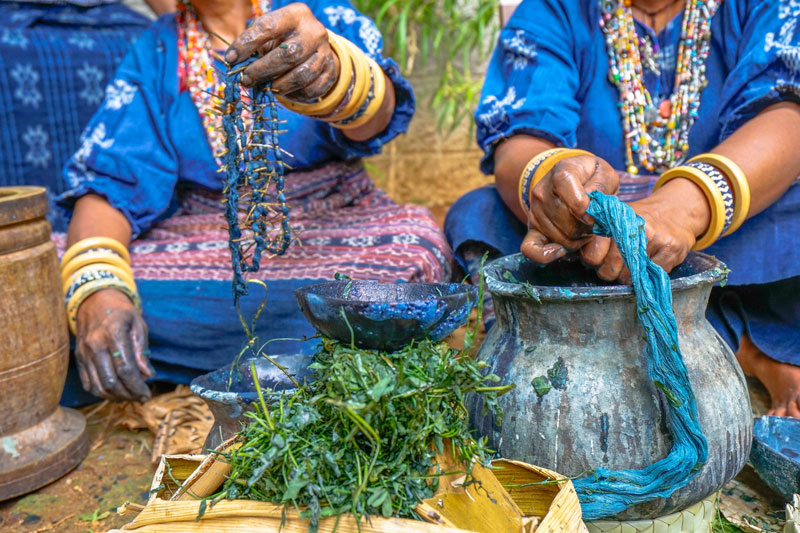
We’ve been reunited with international shipments four times now, and each time it gets better. The first time we shipped a few practical items and our boxes brought us little comfort. We neglected to send ourselves anything that held emotional value or memories. Following that first ill-considered, sparse shipment, we have been collecting art, furniture, and memorabilia that resonated with our host countries.
In Taiwan, we marveled at the craftsmanship of the woodcarvers, learning to recognize the iconography of the ornately detailed animals and flowers represented in panels we purchased while antique hunting. We collected huge ceramic jugs that were used to transport and store rice wine for centuries. Thrilled to be introduced to Asian cuisine, we purchased tea service sets, steamer baskets, and hand-thrown pottery, bringing them out for special occasions when we served Taiwanese dishes.
Now in our fourth year in Indonesia, we have developed a great admiration for the incredible, painstaking efforts put into batiks and handmade textiles. We have visited multiple cultural centers – from Java to Bali to Flores – meeting with the people who carry on the traditions of making textiles. One work we purchased from a young woman intent on keeping the centuries-old technique alive is a symbolic representation of the 2011 tsunami, depicting destruction and renewal through the unique graphic patterns of her batik.

For my part, I have become fascinated by the bone and wood figurines of Papua and have a growing menagerie of gargoyle-like carvings. A visitor to our house will also find peculiar bamboo engravings and whimsical pen and ink drawings from Bali that depict Hindu myths. Expats who hold on to some of these kinds of treasures carry with them cherished memories of travels and the people they’ve met. More than decorations, those mementos are talismans against forgetting.
Finally, as anyone who has had a pet can tell you, nothing makes a house feel like a home quite like being met at the door by a little furry buddy. Some expats are reluctant to make the long term commitment to an animal, and I get that. It is painful to form those attachments, not knowing if you can ship the beloved animal back to your home country. But if conditions allow, adopting a pet or picking up a stray in your new host country is a win-win for both parties. Full disclosure: obtaining travel documents for a pet comes with all kinds of bureaucratic headaches, and a forty-foot shipping container cost us about $20,000 (Brazil to Indonesia). But, as we realized, if you are willing to put in the time to advocate for your animals and the money to preserve your treasures, your home can go wherever you go. While for some that price might seem high, imagine buying all of the necessities for setting up a new house upon arrival, multiplied by three moves in our case. Thus, for lifers like us, the benefits of shipping can outweigh the costs of repeatedly purchasing furnishings.
Get Past Goodbye to Hello
In the international community, people come and go, so it is essential to find a way to have good goodbyes and to maintain contacts. One of the most difficult aspects of life abroad is the revolving door of friends and colleagues who pass through your life. Done poorly, one’s departure can be conducted as a scorched earth campaign, where the leaver essentially says, “I can’t wait to get the hell out of here!” to the leavees, closing doors forever. During the first few years as an expat, constant goodbyes can be disorienting and defeating.
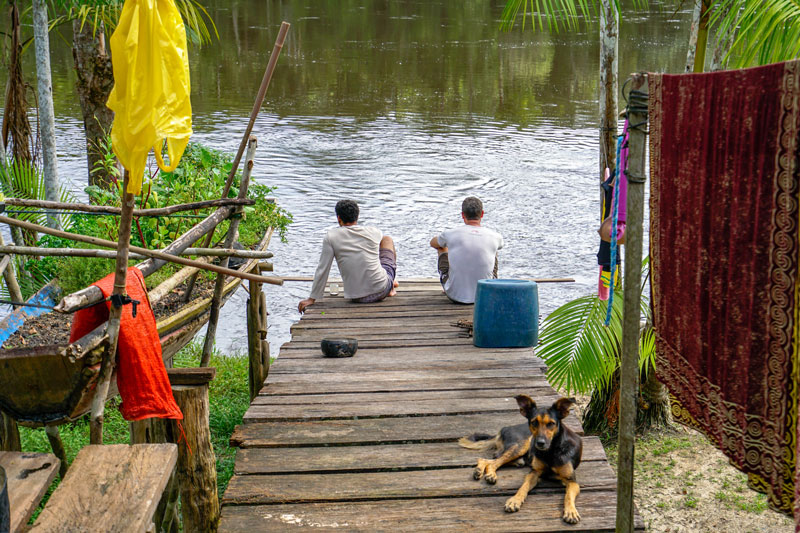
Knowing that goodbyes are, inevitably, a factor of life for those with a longevity mindset, there are ways to control your narrative and to have a positive farewell. One strategy that we can recommend is to have “gratitude” parties at the end of an international journey, where you gather that third culture community together to give thanks for all the benefits that have accrued to you over your stay. In Rio, we managed this by collaborating with several of the other expats who were also leaving that year, and we all put together a gala event at a local skytop lounge for our local friends and the remaining expats, reflecting on years of joyful memories. In the end, we turned over the community-building projects to those who would carry on with the hiking trips, dinner parties, and cultural outings.
International teachers who stick it out soon find, happily, that friends come back into their lives in the most unexpected ways. Knowing that goodbye does not need to be forever allows for more positive transitions, as those departing can rest assured that ties can remain strong as long as you nurture them. Long after leaving Brazil, for example, we continue to call to check in on our extended family there, following their joys and struggles. In October, we are returning to Taipei to be reunited with a dozen or so lifers and locals. The expense of visiting is a real impediment, yet video calls are getting so good now it’s like being in the room together.

The international school system is a small world, and teachers who recommend qualified professionals to their administration are sometimes reunited with those friends when conditions align. Friends we worked with in Taiwan suggested we join them in Indonesia, and it has been a very good match for us. Once we settled in, we encouraged friends from our former school in Brazil to apply, and we are now colleagues again, and they are regular guests around our table, along with two new additions to their family.
And for those friends who are half a world away, we still meet at educational conferences, or we end up visiting them in their new countries. If repatriated teachers can’t physically return to a cherished host country, reunion parties in a convenient middle ground are a fulfilling way to reinforce bonds formed overseas. To expats who repatriate permanently, the lifers can continue to serve as a bridge to a time a place that exists only as a community memory.

While in Seattle, we collaborated with repatriated friends to host a Rio Reunion. Drinking caipirinhas on their back porch while listening to Bossa Nova, we talked for hours about what we missed and shared contacts with absent friends so connections could be maintained. In Jakarta, we invited all our friends who had connections to Taiwan to a dinner featuring traditional foods like xiao long boa (dumplings) and wonton.
Ultimately, we will need to repatriate, too. And thinking about that time when we are somewhere in the next house where we intend to establish new roots, I can imagine our final shipment day – that moment when a truck pulls up to the door, loaded with treasures just released from customs. I imagine carrying boxes into the house, and then, with joyful anticipation, Jen and I will cut the tape away and pull out one memory after another. What new artifacts will we have added to the hoard by then? I cannot say. But when the shipment is all unpacked and the items are stacked randomly here and there, with the cats tearing through the paper strewn about the floor – at that moment, probably with glasses of wine in our hands, I am pretty certain that Jen and I will turn to each other and make a toast, to our new home.
This article is available and can be accessed in Spanish here.







